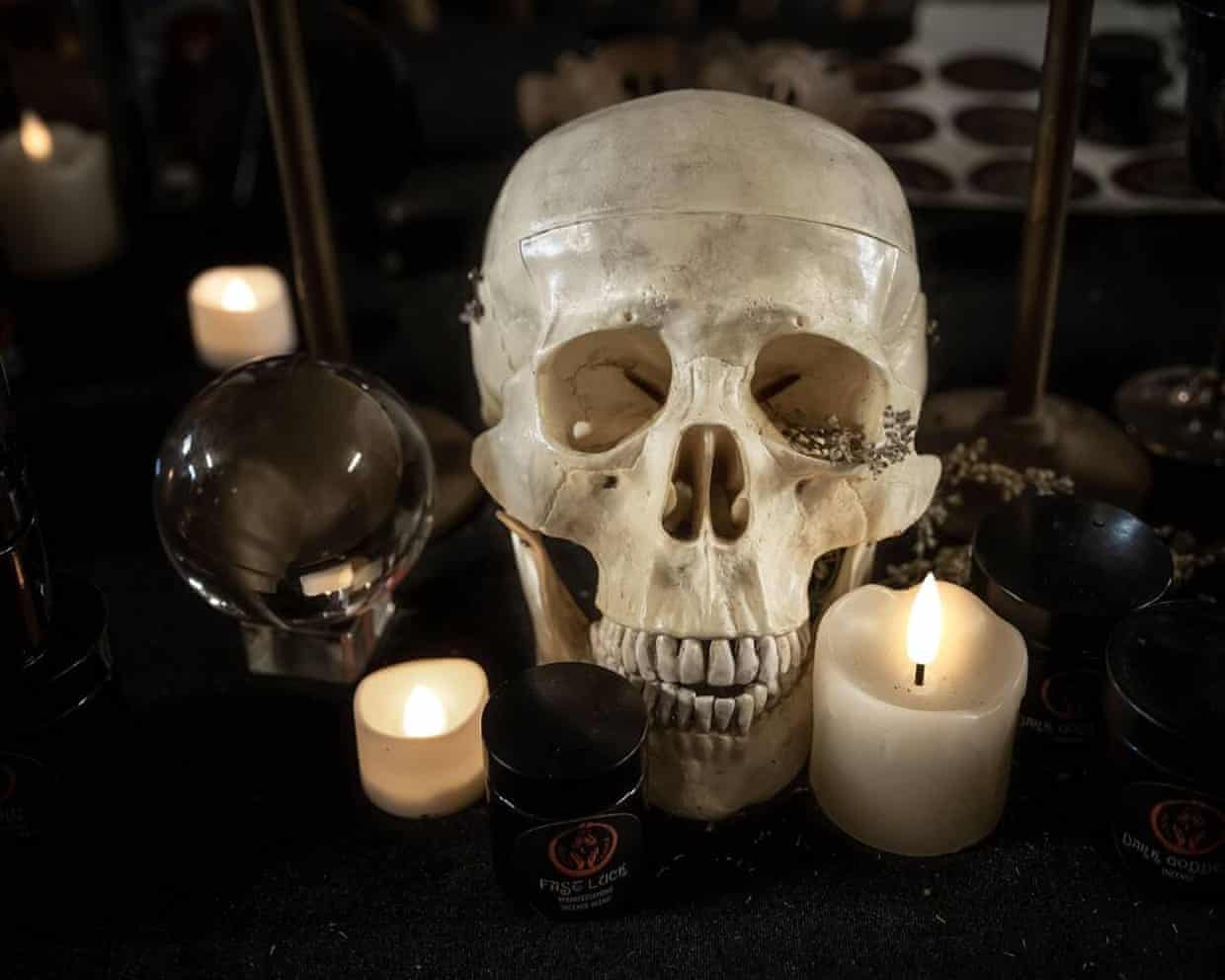Science
Experts Demand Crackdown on Controversial Trade of Human Remains

The sale of human remains, including skulls and bones, has surged in the UK, raising ethical concerns among experts and prompting calls for stricter regulations. Henry Scragg, owner of the curiosity shop Curiosities from the 5th Corner in Essex, reflects a growing market where items like human skulls and mummified body parts are available for purchase. While the shop operates within current legal frameworks, authorities and scholars warn that the lack of regulation creates a dangerous environment reminiscent of “body snatching.”
In a YouTube interview, Scragg expressed his openness to trading in human remains, provided they are ethically sourced. His shop features an unsettling array of items, including a monthly human skull subscription service. He acknowledges the controversial nature of his offerings but defends the practice by suggesting that selling such items to collectors may be more respectful than burying them.
Experts, including renowned forensic scientist Dame Sue Black, raise alarms over the implications of this unregulated trade. Black, who serves as the president of St John’s College at Oxford, stated, “If you can make the sale of a bird’s nest illegal, surely to goodness you can make the sale of a human body illegal. Having a necklace made out of somebody’s teeth isn’t acceptable to people.”
The legal landscape surrounding the trade in human remains is complex. In the UK, while desecrating a grave is an offence, the remains themselves are not classified as property, which complicates the prosecution of those who buy or sell them. This legal void allows for the sale of historical human remains, even if they have been unlawfully exhumed, without consequences.
Regulations and Ethical Concerns
Dr. Trish Biers, an anthropologist from the University of Cambridge, leads a taskforce at the British Association for Biological Anthropology and Osteoarchaeology (BABAO) dedicated to addressing the trade of human remains. She noted a significant uptick in sales over recent years, with BABAO blocking more than 200 sales from various sources, including auction houses and online platforms. Biers indicated a troubling trend where skulls described as “archaeological” have emerged, suggesting they may have been excavated from graves.
The accessibility of social media has also transformed the market. Biers remarked, “It’s not illegal and that’s the problem.” In March, trader Mattaeus Ball announced he would cease trading in human remains due to the increasing association of his business with stolen artifacts and grave-robbing.
The Guardian recently examined several skulls available for sale online. Forensic experts assessed these items and noted that while some were likely ex-anatomical teaching skulls, others exhibited signs of recent excavation, such as root damage and traces of human tissue. One skull, listed for £995, was identified as likely having been buried, while another, marketed for £795, showed signs of manganese oxide staining consistent with remains from old graves.
Calls for legislative reform have emerged from various quarters. Paul Boateng, a prominent figure advocating for change, plans to meet with Lisa Nandy, the UK culture secretary, to address concerns regarding the trade in remains from Indigenous communities. He stated, “The continual trade in human beings even after death… is deeply repugnant and a source of shame to our country.”
The Human Tissue Act 2004 regulates the use of human remains but primarily applies to those under 100 years old. The act was introduced following the Alder Hey scandal, where the unauthorized removal of children’s organs came to light. Critics argue that the existing laws do not adequately address the ethical implications of private trading in human remains.
As the market for human remains continues to evolve, experts advocate for a clearer legal framework that upholds dignity and respect for the deceased. Imogen Jones, a law professor at the University of Leeds, highlighted the need for legislation that reflects societal expectations regarding the treatment of bodies. She noted, “The private use of these things is in a legal void.”
A spokesperson for the Department for Culture, Media and Sport stated that all human remains should be treated with respect and dignity. They expect auction houses to scrutinize their activities and for traders to consider the ethical implications of their business. The Human Tissue Authority echoed this sentiment, emphasizing the importance of consent and dignity in dealings involving human tissue.
The debates surrounding the sale of human remains reveal deeper societal issues about how we regard the deceased. As the online market for such items grows, the challenge remains to balance collectors’ interests with the ethical treatment of human bodies and the respect due to those who have passed.
-

 Politics4 weeks ago
Politics4 weeks agoSecwepemc First Nation Seeks Aboriginal Title Over Kamloops Area
-

 World5 months ago
World5 months agoScientists Unearth Ancient Antarctic Ice to Unlock Climate Secrets
-

 Entertainment5 months ago
Entertainment5 months agoTrump and McCormick to Announce $70 Billion Energy Investments
-

 Science5 months ago
Science5 months agoFour Astronauts Return to Earth After International Space Station Mission
-

 Lifestyle5 months ago
Lifestyle5 months agoTransLink Launches Food Truck Program to Boost Revenue in Vancouver
-

 Technology3 months ago
Technology3 months agoApple Notes Enhances Functionality with Markdown Support in macOS 26
-

 Lifestyle3 months ago
Lifestyle3 months agoManitoba’s Burger Champion Shines Again Amid Dining Innovations
-

 Top Stories2 months ago
Top Stories2 months agoUrgent Update: Fatal Crash on Highway 99 Claims Life of Pitt Meadows Man
-

 Politics4 months ago
Politics4 months agoUkrainian Tennis Star Elina Svitolina Faces Death Threats Online
-

 Sports5 months ago
Sports5 months agoSearch Underway for Missing Hunter Amid Hokkaido Bear Emergency
-

 Politics5 months ago
Politics5 months agoCarney Engages First Nations Leaders at Development Law Summit
-

 Technology5 months ago
Technology5 months agoFrosthaven Launches Early Access on July 31, 2025



















